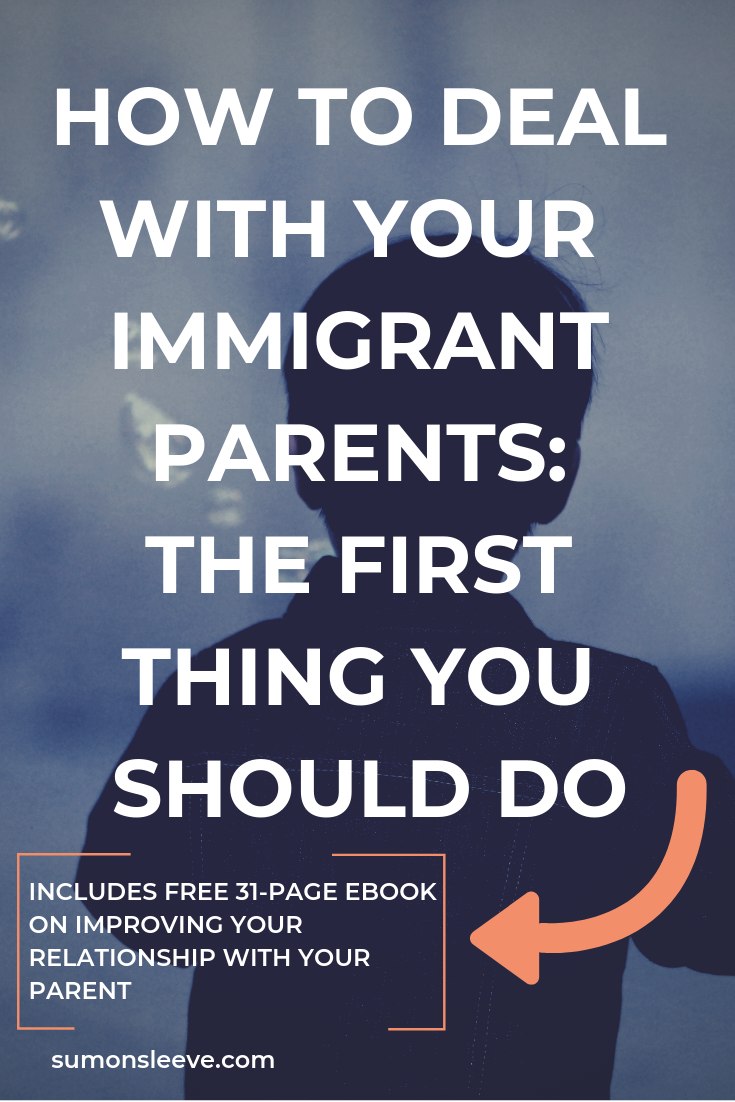
How can we deal with Asian immigrant parents when we barely understand one another?
Here is the first thing you should do.
Oh, Asian Parents. I am one and I have them.
Can we all agree that our parents can be annoying? Different generations, different upbringings, different cultures, different languages…it’s like they don’t get it.
Can this change?
Yes.
**Click Below To Listen**
As a Millennial of Asian, immigrant parents, I deserve to have open and honest conversations with them.
I deserve to be supported in pursuit of my hopes and dreams.
I deserve to have my opinions validated.
I deserve to be treated as a peer during difficult conversations, not shut down because “I’m too young to understand.”
I deserve to have the courage to be vulnerable with my parents, sharing with them who I am without being judged, ridiculed or belittled.
I deserve to learn from them and they deserve to learn from me.
I deserve to get to know my parents and they deserve to get to know me.
Because at the end of the day, we all deserve to understand ourselves so we can become better parents, better mentors, better role models than they were to us.
How can we get through to our parents so we can get what we deserve?
I’m starting a 5-part series on improving our relationship with our parents.

Before I go through my steps, I need to disclose that I am not an expert/psychologist. These are merely steps that have been working for me so far. I thought I should share with the world in case anyone would like some tips.
If you or your parent has a mental illness or you are currently being abused, please seek professional support for yourself (in addition to encouraging your parent if they aren’t already).
There’s way too much stigma associated with mental illness, especially within the Asian community.
I’m #momonamission to ending that ridiculous stigma.
I see my parents at least 3 times a week. Our relationship hasn’t been rainbows and sunshine but it’s improved over the years. I like to treat my relationship (like with all my relationships) as an ongoing improvement journey.
I get along with my mom much better than my dad.
Some days, I don’t feel like talking to him because of our differences.
He is an eternal pessimist.
I’m a realistic optimist
He likes to bring up the downsides of good news (Yeah, but…).
I like to savour happy feelings and practice gratitude.
He is not easily impressed.
I am a recovering perfectionist.
He is a traditionalist with misogynistic tendencies (ie. women are bad drivers, men will leave their wives if they make more money than them etc).
I am a feminist.
He is not the person I want to share
I take pride in being the person people can confide in.
Although we are so different, there are many things about him that I see in myself:
We are extremely practical people.
We wear our sums (hearts) on our sleeves.
We don’t drink, smoke or gamble.
We are storytellers.
We enjoy swearing.
We have government pensions.
So I have tried and am still trying to improve my relationship with him because the more I know him, the more I know myself.
And the more I know myself, the more I understand why I feel strongly about situations and the better wife, parent, sister, friend, daughter, grandma or aunt I will be.
This is the first step: Understand why you want to improve your relationship with your parent(s).
Ask yourself these questions:
Why do you want to have a difficult conversation with them?
(It’s frustrating, annoying, anxiety-inducing…why bother?)
Why do you want to talk about a difficult topic?
Why do you want them to know you?
Why do you want to know them?
Why do you care about this relationship?
Why is your relationship with your parents important to you?
What would happen if you did nothing to improve your relationship with them?
And then they died?
How would you feel if they didn’t know you?
How would you feel if you didn’t know them?
Indifferent? Sad? Grateful?
If you don’t know why then you can’t pursue any improvement in that relationship.
You can’t change something in your life if you don’t want it to change.
Click for Step 2 (What?)
Click for Step 3 (How?)
Click for Step 4 (When?)
Click for Step 5 (Who?)




